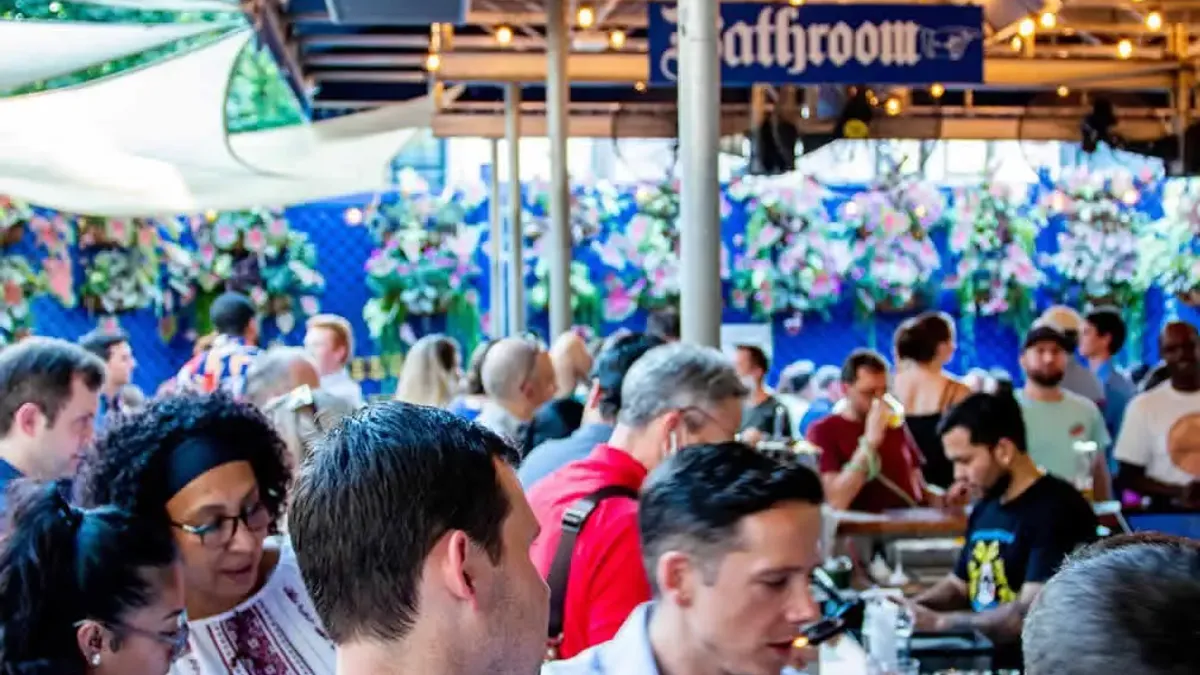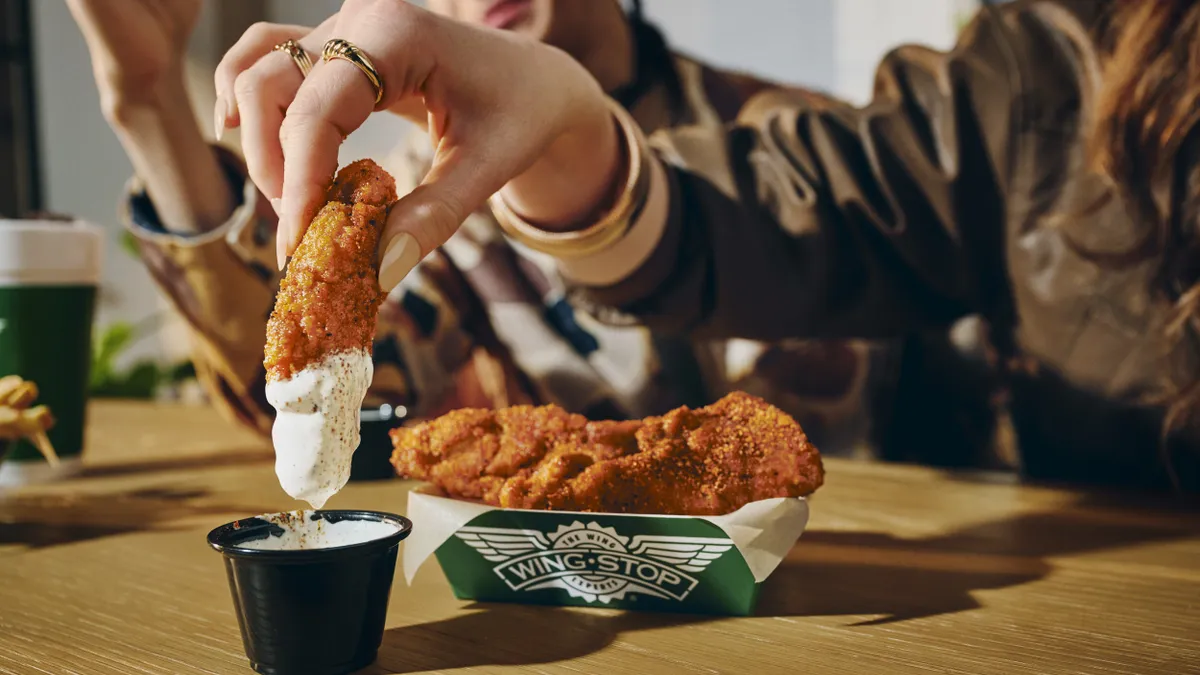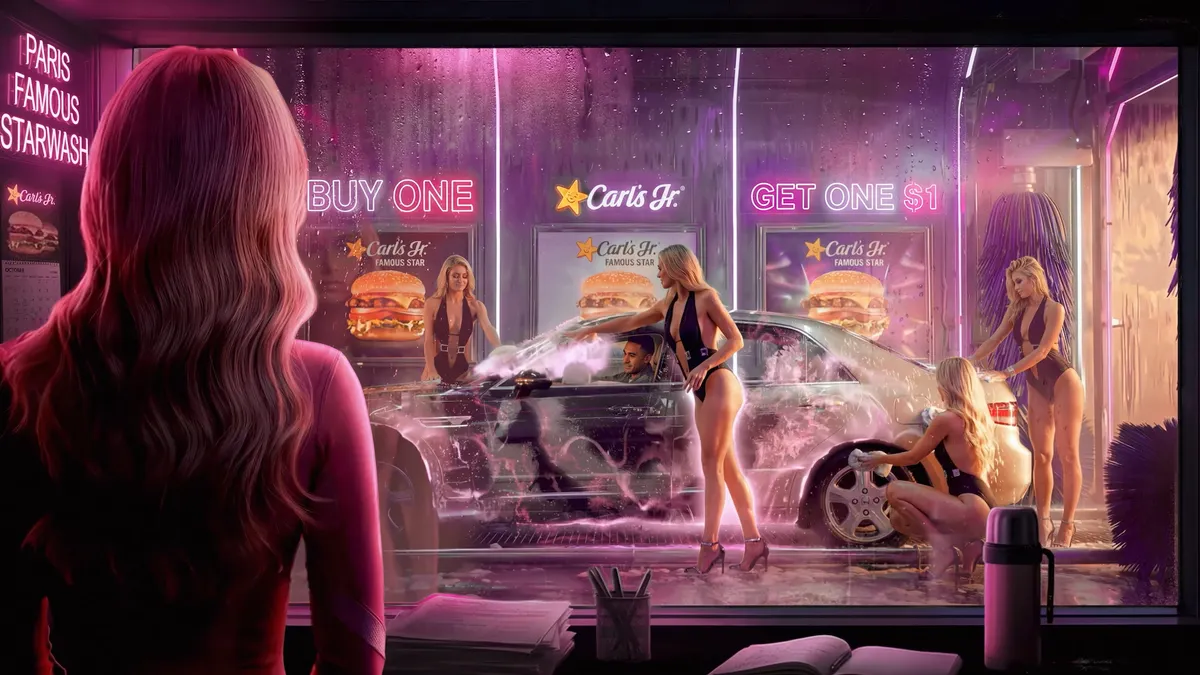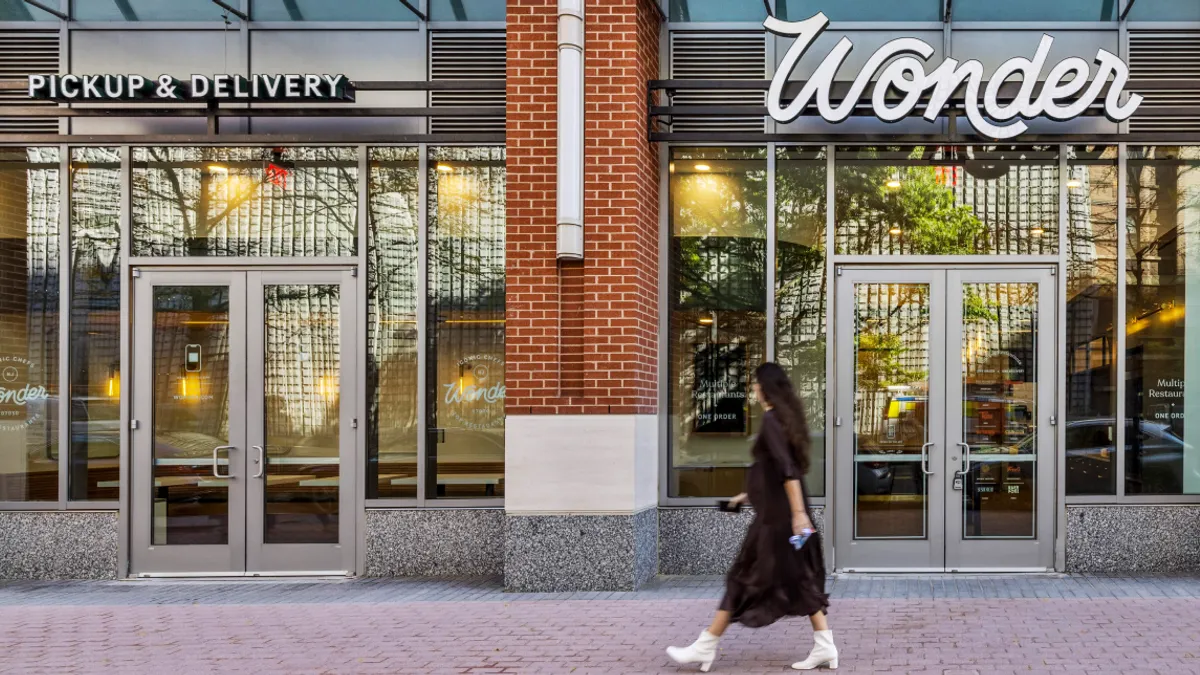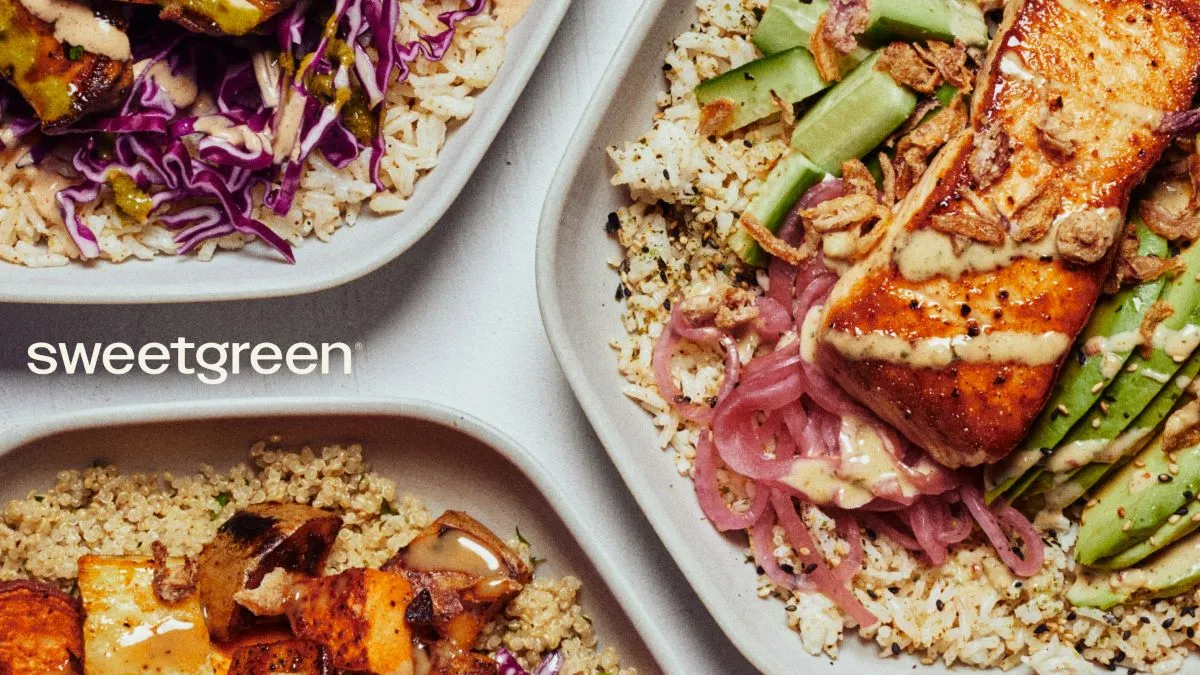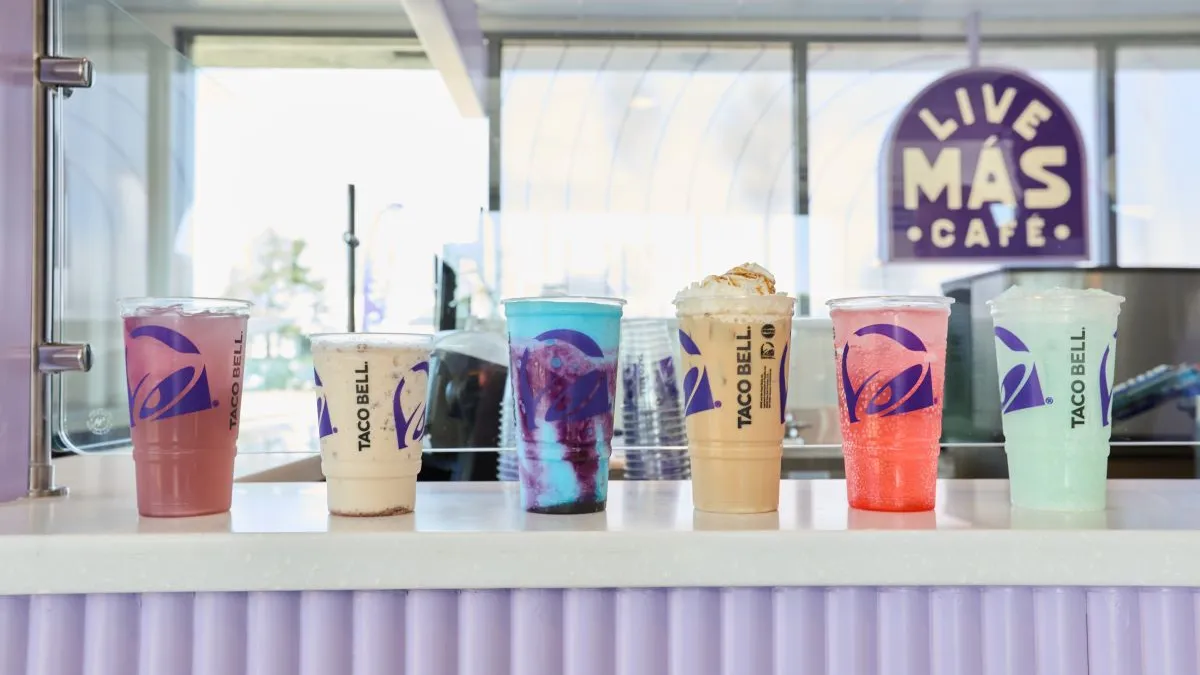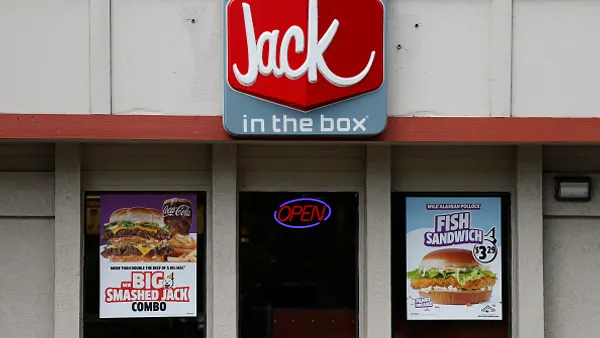Editor’s note: This article is part of an ongoing franchise series, which highlights brands that are new to or aggressively expanding via franchising. Is your restaurant starting to franchise? Email us at [email protected].
Ten years ago there was only one beer garden in Washington, D.C., and Dimitri Chekaldin, co-owner of Dacha Beer Garden, found it underwhelming. So he and his business partner, Ilya Alter, started their own.
“We would say to ourselves…, ‘Why is this pretty lame beer garden doing so well?’” Chekaldin said. “We know beer gardens, we can do better.”
Today, the two of them want to expand the concept beyond D.C., through franchising.
Chekaldin and Alter were new to the restaurant industry when they founded Dacha in 2013. Chekaldin, who immigrated to the United States from Russia in 1994, worked in communications and tech before jumping into the restaurant industry. Alter, also a Russian immigrant, worked in financial management at law firms. Though both were familiar with beer gardens from their time in Europe, running one required a steep learning curve.
“The first hiccup that we had was we ran out of the paper in the ticket machines in the midst of the first day,” Chekaldin said. “There were all these people that wanted to get a beer and then we couldn’t print a check.” Since then, the pair opened a second, larger location in Washington D.C’s Navy Yard neighborhood in May 2019.
Beer gardens, Chekaldin said, require open space in cities, which can come at a premium. But the concept poses other challenges in the U.S. too, which Chekaldin thinks Dacha has overcome in preparing for franchising.
“A typical beer garden customer, especially in America, wants to be outside, but only notionally,” Chekaldin said. “They still want full protection from rain, from sun, from wind, from cold, from heat.”
All of these individual elements require solutions. Dacha has a canopy system, currently in use at its Navy Yard location, which Checkaldin said meets all these challenges. Dacha designed the system to be scalable for a variety of locations, making it ideal for businesses looking to set up a beer garden.
It can be difficult to find space that’s zoned for beer gardens, and neighbors, especially in residential areas, will sometimes object to the idea of one, Chekaldin said. The concept, generally, may not be as familiar to Americans as Europeans. In the U.S. many beer gardens shuttered during a wave of animus against German immigrants coinciding with World War I.
“Prohibition started and it was all wiped out,” Chekaldin said. “The lowest level of democracy is a neighborhood commission. They can weigh in, even if the place is zoned to be commercial, they can weigh in [and object] and most of the time, it's about the alcohol license.”
But, in the last few years, Chekaldin said, American consumers have started to come around on outdoor dining, which may be due to the pandemic restrictions that pushed many cities to temporarily – and in some cases permanently – make it easier for many restaurants to serve their customers outdoors.
“Americans love comfort,” Chekaldin said. “Beer gardens are about comfortable consumption of beer.”
Then there’s the beer. Dacha has partnered with Bavarian State Brewery Weihenstephan, a German brewery that claims to be around 1,000 years old. According to Chekaldin, Dacha is Weihenstephan’s second largest beer garden customer in the world, after the brewery’s own beer garden. Weihenstephan’s long track record is an advantage.
“In the beer world, what really matters is consistency,” Chekaldin said. “Especially when it comes to normal beers like Hefeweizen or Pilsner, you want to have a consistent product.” Weihenstephaner’s importer is capable of delivering to all 50 states, Chekaldin said.
With that consistent product, a decade of experience in D.C. and a strong following on social media, Chekaldin thinks Dacha is ready for expansion. American consumers are ready too, by Chekaldin’s estimate, especially as the pandemic has gotten consumers used to outdoor dining.
But Dacha plans to take its initial expansion slowly.
“You don't want to overextend,” Chekaldin said. “You want to really sort of make sure that the first two or three businesses that you help open are successful and will not damage the brand.”
That brand, at least in D.C., has not been without controversy. In 2019, Chekaldin and Alter faced a major suit from suppliers and allegations of wage theft, and suspended plans to develop a location on 14th St. NW. The Dacha team said the case was dismissed in December 2019, following an out-of-court settlement.
Development plans
Dacha is looking primarily at East Coast markets for the time being, especially Delaware, Virginia, Maryland, North Carolina, South Carolina and Florida Chekaldin said. Dacha wants to open two to three franchised locations in the next five years to avoid overextending and damaging the brand. Dacha, alongside concepts like Bohemian Bull in South Carolina, is one of a handful of beer garden brands to offer franchising in the United States.
An ideal spot for a beer garden, Chekaldin said, would be in an urban area with a minimum of 3,000 square feet in open, outdoor space. It would also have 1,000 to 1,200 square feet of indoor space, which is about the size of the indoor space at the company’s first location at 7th and Q Streets NW in Washington, D.C. According to Dacha’s 2022 Franchise Disclosure Document, reviewed by Restaurant Dive, a franchised unit requires about 4,000 square feet of outdoor space, 2,000 square feet of indoor space and up to 1,800 square feet for an additional indoor events space.
“It really doesn't matter if it's in Columbia, South Carolina, or Ocean City, Maryland,” Chekaldin said. “A good space will make a good beer garden.”
According to the document, the Shaw location, comparable in size to spaces that franchisees would open, had about $4.6 million in gross sales in 2019, and $3.75 million in 2021.
Ideal franchisees
Checkaldin framed franchising as a way for entrepreneurs to open their own businesses without the sharp learning curve required by inventing one’s own brand.
“Franchising overall is a good ticket for young professionals who want to change the dynamic of their life,” Chekaldin said. “You use somebody else's experience. And thus, you're less likely to experience turbulence.”
Dacha is looking either for experienced franchisees, or younger professionals backed by a business partner or family member. Chekaldin said Dacha’s history of sales will make it easier for prospective franchisees to obtain financing than if they were to try to start an original restaurant concept.



